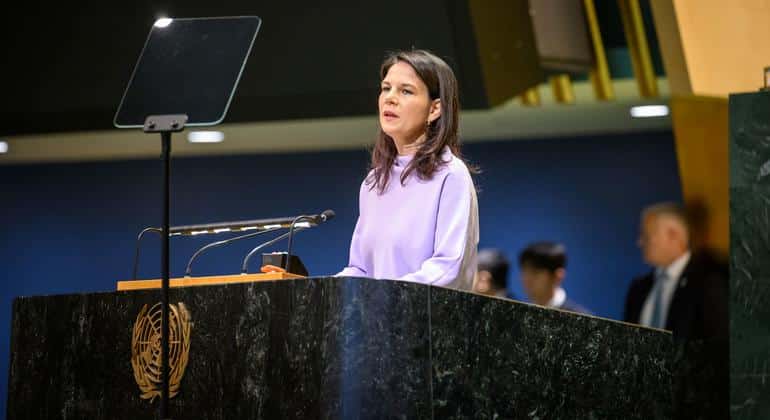Sure! Here’s the translation:
—
On September 22, the United Nations General Assembly celebrated the 30th anniversary of the Fourth World Conference on Women, an event that marked a milestone in the fight for gender equality. This conference, held in 1995 in Beijing, brought together 17,000 participants and resulted in the adoption of the Beijing Declaration and Platform for Action, which addressed crucial issues such as poverty, education, violence, the role of women in armed conflicts, and access to power.
In her speech, Annalena Baerbock, President of the UN General Assembly, emphasized the importance of implementing the decisions made in Beijing. “No politician, judge, or male religious leader should tell our girls what to do with their bodies,” she stated, emphasizing that “they are human beings, not property.”
UN Secretary-General António Guterres highlighted the impact of artificial intelligence, often designed without the inclusion of women, warning about the risks of bias and discrimination. “We must tackle violence and hate online, ensuring that technology promotes equality,” he said.
Mexican actress Cecilia Suárez, UN Spotlight Initiative ambassador, pointed out the investment deficit in gender equity, stressing that the world allocates six times more resources to military preparations than to the protection of half of the population. “What have we normalized to think that having means of destruction is more important than the development of women and girls?” she questioned.
In the current context, various UN agencies warned about the stagnation in progress toward gender equality, stressing that no goal is on track to be achieved. According to a recent report, 10% of women live in extreme poverty and 676 million are near conflict zones, figures that are a major cause for concern.
Despite the challenges, significant achievements have been recognized since the implementation of the Beijing Platform for Action, such as the enactment of more than 1,500 laws to combat gender-based violence and an increase in female representation in decision-making positions. However, the international community still has a long way to go.
The event concluded with a call to allocate resources that ensure the implementation of gender equality policies. Investment in equity is not only seen as a moral mandate but also as a strategy capable of generating significantly positive economic impact. However, funding remains insufficient, highlighting the urgency of changing the narrative about the importance of gender equality in all areas of society.
Source: MiMub in Spanish
